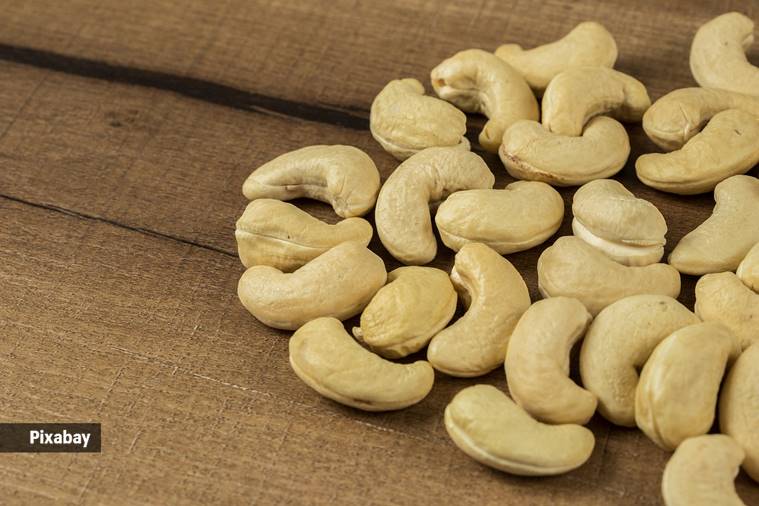📣 For more lifestyle news, click here to join our WhatsApp Channel and also follow us on Instagram
The three fats you must include in your daily diet are…
"Not all fats are the same. While some like saturated and trans fats are harmful to the body, unsaturated fats like PUFA, MUFA AND OMEGA 3 fats come with health benefits,” says Dr Shobha Subramanian
 Did you know that most of your body is made up of fat cells? (Pic source: Pixabay)
Did you know that most of your body is made up of fat cells? (Pic source: Pixabay)You may be tempted to avoid fats in your diet, especially if you are on your way to losing weight. But what if we tell you that all fatty foods are not bad for your health? Well, it’s not just us, celebrity nutritionist dietician Rujuta Diwekar also said the same in one of her recent Instagram videos, stressing that “fat is not the villain that it has been made out to be”.
Adding that most of our body is made up of fat, including the skin and brain, she added that their functioning is also impacted by the quality of fats we eat. As such, Diwekar, who staunchly advocates eating local and in tune with one’s traditional and cultural intelligence, advised bringing back three fat items, namely – tadka in kacchi ghani oils (cold pressed or filtered); coconut as garnishing, chutney; and cashews as mid-meal or with milk before sleeping to improve health.
Talking to the indianexpress.com, Dr Shobha Subramanian-Itolikar, Consultant Internal Medicine, Fortis Hospital Mulund, said, “Not all fats are the same. While saturated and trans fats are harmful to the body, unsaturated fats like PUFA, MUFA AND OMEGA 3 fats come with health benefits”.
She further said that good fats play a vital role in maintaining “cellular integrity, absorption of fat-soluble vitamins, providing instant energy, prevention of neurodegenerative disorders and maintaining a favourable lipid profile”.
View this post on Instagram
Fats to add in your diet
Diwekar explained why you need to add these super simple fats in your diet.
1. Tadka in kacchi ghani oils
Use oils native to your region – e.g. mustard for north and north east India, groundnut or til for central and western, and coconut for Kerela. Our native recipes are fine-tuned to the fatty acid and nutrient composition of our oils, and to make the best of what we eat, this must be followed in totality. No jumping on the bandwagon of “heart healthy” or other such promises made by refined vegetable, rice bran, safflower or similar oils. “Avoid oil-free or fat-free at all costs,” she said, adding that kacchi ghani (cold pressed) must be had because it means the oil has ben extracted at a lower temperature and therefore fatty acids, vitamins and other nutrients are intact.
“It is very important for diabetics to have traditional oils,” she mentioned.
Talking about the benefits of traditional oils, Dr Subramanian said, “It’s good to use traditional oils because Indian cooking requires oils with high smoke points. But in the case of pre-diabetics and diabetics, recent studies have shown the benefits of using modern oils like extra virgin olive oil and avocado oil in managing sugars, cholesterol, and weight. Each variety of oil comes with its own set of benefits and harms. So, it will always be prudent to reduce overall oil consumption”.
Dr Subramanian further shared the pros and cons of cold pressed oil.
Pro: Due to its method of extraction — by pressing oil seeds without the use of heat — there is retention of taste value (delicious nutty flavour), retention of nutritive values (Omega 3 fats and minerals like copper, selenium, and manganese), and has antioxidant properties.
Con: Cannot be subjected to high temperatures of cooking. It is expensive, has a short shelf life, and should be consumed in little amounts only. Examples of cold-pressed (CP) oils- CP sesame oil, CP coconut oil, CP olive oil.
2. Coconut as garnishing, chutney, etc.
From supporting gut health, helping you calm your nerves to soothing digestion, the benefits of coconut are many. It being anti-bacterial, anti-viral, are an added bonus. If you are one of those who get UTI every summer, don’t forget the coconut. So garnish your food with it, turn it into laddoos and barfis, make chutneys, have the malai and even dry with jaggery or just peanuts.
 Coconut has both anti-bacterial and anti-viral properties. (Pic source: Pixabay)
Coconut has both anti-bacterial and anti-viral properties. (Pic source: Pixabay)
Dr Surramanian shared the benefits of coconut.
Benefits of coconut
· High fibre content
· Gives a feeling of early satiety
· High manganese – good for bones and muscles
· Selenium is a good antioxidant
· Medium-chain triglycerides boost metabolism
· High nutritive value- vitamin B and proteins
· Antibacterial – especially on the skin
3. Cashews as mid-meal or with milk before sleeping
Other than good fat, it is rich in minerals, amino acids, and vitamins. The amino acids help, among other things, in the production of serotonin, the natural sleeping pill whose only side effect is a stable, happy mood the next day. The magnesium helps the nerves to relax. Its tryptophan (an amino acid) and vitamin B combination help make kaju a natural anti-depressant. It’s a summer nut and you can eat the cashew fruit too (super rich in Vit C).
 Cashew has tryptophan, which can help you sleep better. (Pic source: Pixabay)
Cashew has tryptophan, which can help you sleep better. (Pic source: Pixabay)
Dr Subramanian shares the benefits of cashew.
Benefits of Cashew
· High fibre – provides instant energy
· Good fats when taken in moderation
· Mood stabiliser
📣 For more lifestyle news, follow us on Instagram | Twitter | Facebook and don’t miss out on the latest updates!
📣 For more lifestyle news, click here to join our WhatsApp Channel and also follow us on Instagram






- 01
- 02
- 03
- 04
- 05





















